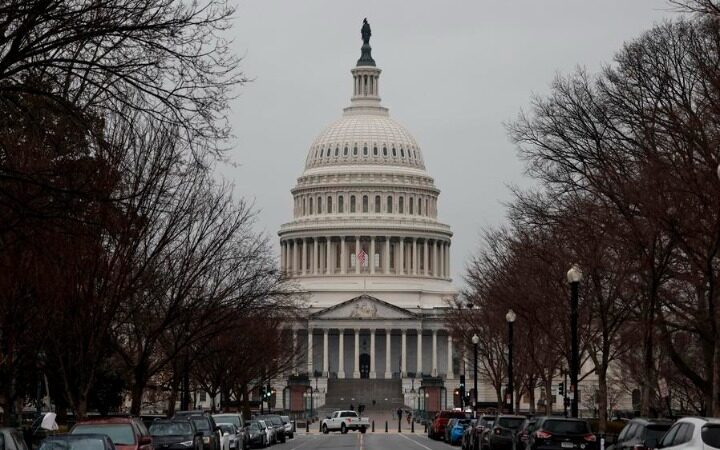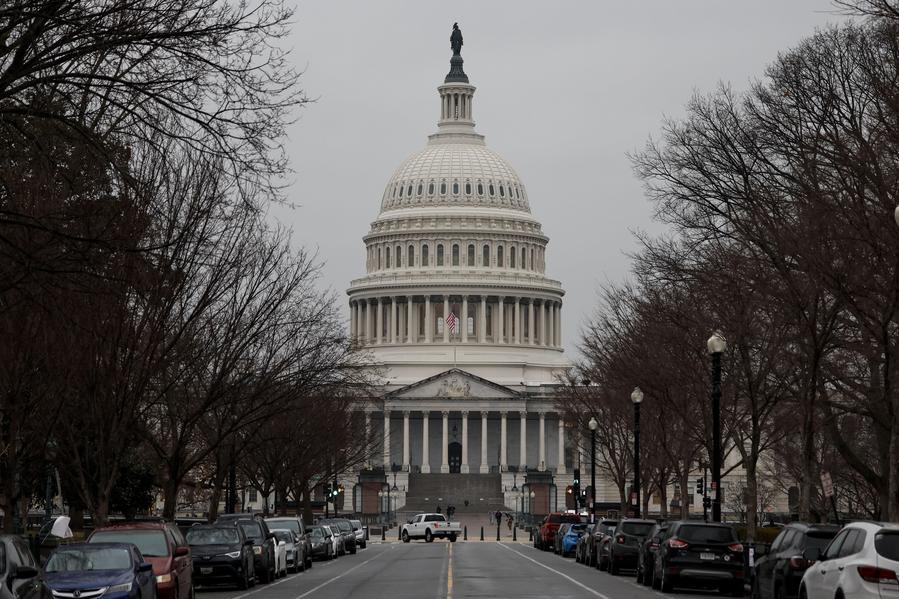

Washington’s restrictive actions also seen to have negative effect globally
From tariffs to semiconductor export controls, the US government’s restrictive policies to contain China’s development will also hurt its own economy significantly, which is often overlooked in the debate, an economist has said.
“When we think about these kinds of tensions between the United States and China and all these restrictive measures, we tend to think about punishing or hurting China or slowing down its progress,” said Yukon Huang, senior fellow at the Carnegie Endowment for International Peace and former World Bank country director for China.
“We don’t actually realize it also has a significantly negative effect on the United States, and it has very significant effects globally in a negative way,” he said at a recent webinar examining US-China economic relations.
Since former US president Donald Trump launched a trade war in 2018, most of China’s exports to the US have been subject to 15 percent to 25 percent tariffs. Economists have warned that these tariffs will not reduce the trade deficit but only raise prices and worsen inflation.
US exports to China in 2022 were 23 percent lower than the projected trend if there were no tariff-based restrictive policies, according to a study last month by US nonprofit Peterson Institute for International Economics.
US exports to China of manufactured goods not only failed to recover after the trade war, but they now show signs of it becoming worse, the report said.
“That was a major source of growth for American manufacturers, which no longer is available. So we tend to think about the harm done to China, but we don’t actually realize that there’s actually a lot of harm being done to the United States,” Huang said.
Increasing dependence
“America’s dependence upon imported manufactured goods continues to increase significantly. So if the goal of the tariffs was to improve the productivity or competitiveness of American companies, it hasn’t done so at all.”
Despite the demand from economists and foreign policy experts to remove the tariffs, US President Joe Biden has continued the policies because those measures can be used to contain China as a rising technological power, Huang said.
“The US policies under Biden have basically been to decouple, to restrict Chinese access to technology, cut off financial, professional and other exchanges, and there is a separation between the two economies.”
US restrictions on exports of high-tech products to China were imposed on competitive or security grounds, but there is lack of focus on the fact that in the medium or longer term, the US growth rate will fall by 1 percentage point, Huang said. As the US typically grows at 2 percent, 1 percent down means “tremendous problems”, he said.
“US companies depend upon research and development to remain technologically advanced. Most of these companies export a lot to China, where they’re being told that they can’t, their profits will be reduced,” Huang explained. “There are estimates that US high-tech companies’ profits will decline by 20 percent to 40 percent in the medium term, and therefore America’s innovative capacity will be damaged.
“We’re seeing that the productivity of US companies is actually starting to decline. That’s why they’re no longer as competitive globally as they used to be,” he added.
Citing a recent International Monetary Fund study that shows that the restrictive tariffs and trade measures will lead to a decline in global output by 7 to 12 percent, Huang said that the US policies not only hurt both sides but also significantly affect the global economy.
Most of the so-called high-tech products being restricted have a small security concern in terms of military applications, but the use of the products for commercial general purposes is vastly larger, he said.
“So when we restrict China’s ability to import these components, we’re going to be restricting the world’s access to what I call lower-priced products,” he said.






